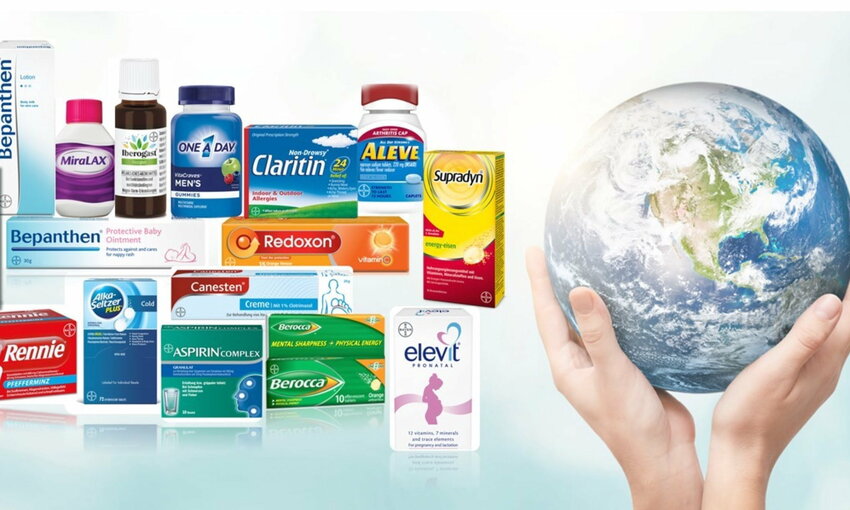 (Credit: Bayer)
(Credit: Bayer)Bayer will invest $113 million to further enable sustainable innovation, production, and consumption its consumer health products. Bayer has a three-pronged science-based action plan in line with the company’s science based-targets to be climate neutral by 2030 and net zero by 2050:
Bayer is committed to finding new solutions that inspire the sustainable creation and consumption of the company’s over-the-counter products and supplements. As such, the division has implemented an approach to “recycle, reduce, be responsible and replace” and has set the following targets: 100% of Bayer Consumer Health’s packaging will be recyclable or reusable by 2030 and all packaging will include consumer-friendly recycling information. Within the same timing, the division’s packaging will include an average of 50% recycled content and 100% of purchased paper will be sustainably sourced. Progress to-date includes:
The urgency of climate change requires partnership to make an impact. The division recently helped develop and sign the "Global Self-Care Federation’s Environmental Sustainability" charter, which enables Bayer to work across competitive lines to encourage industry-wide environmental progress focused on delivering carbon emission reductions and more sustainable packaging.
In line with Bayer’s overarching commitment to climate neutrality by 2030 (Scopes 1 and 2) and net zero across the entire value chain (Scopes 1, 2 and 3) by 2050, the Consumer Health division is taking specific actions to increase energy efficiency and go renewable. Progress to-date includes: